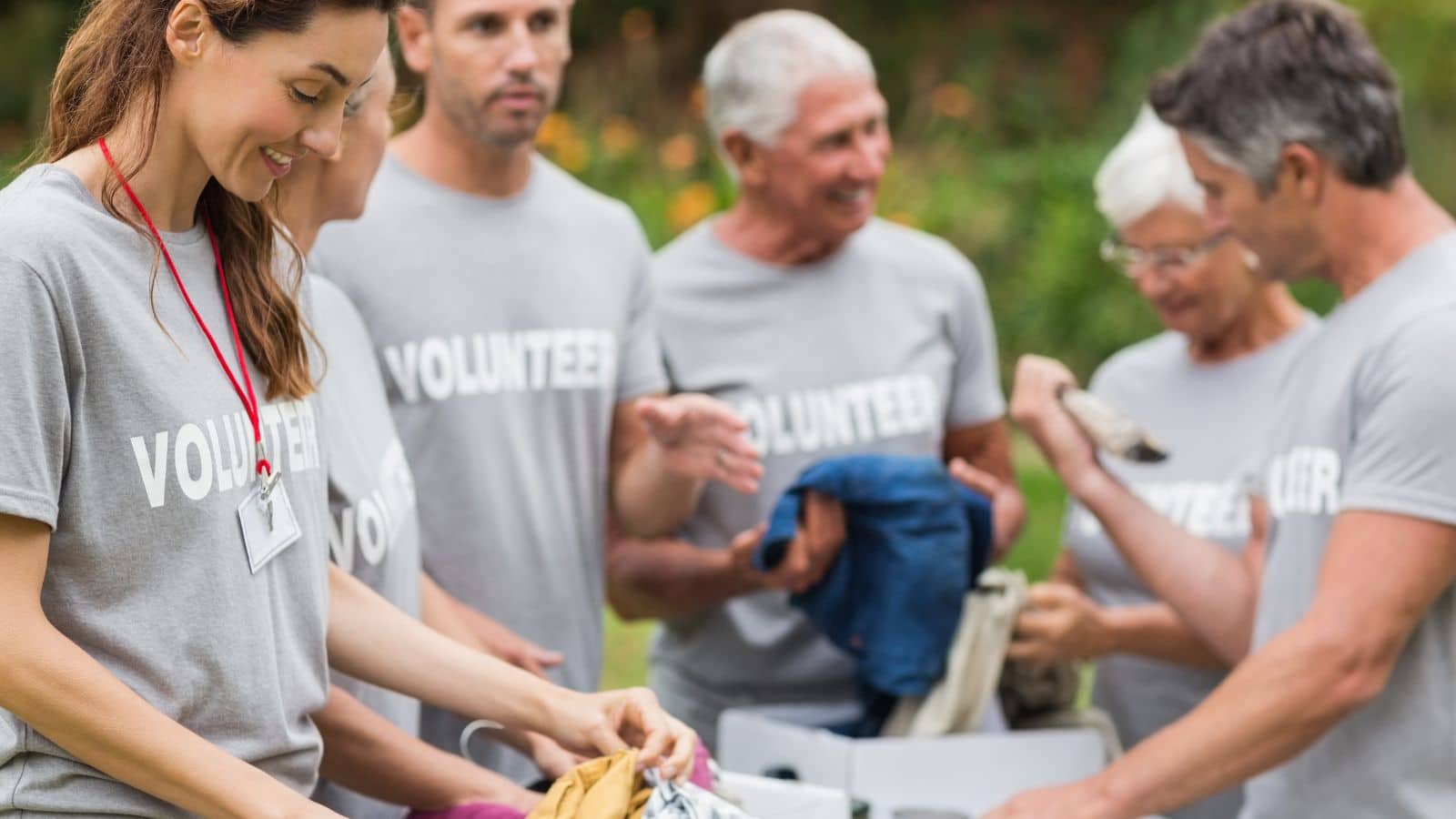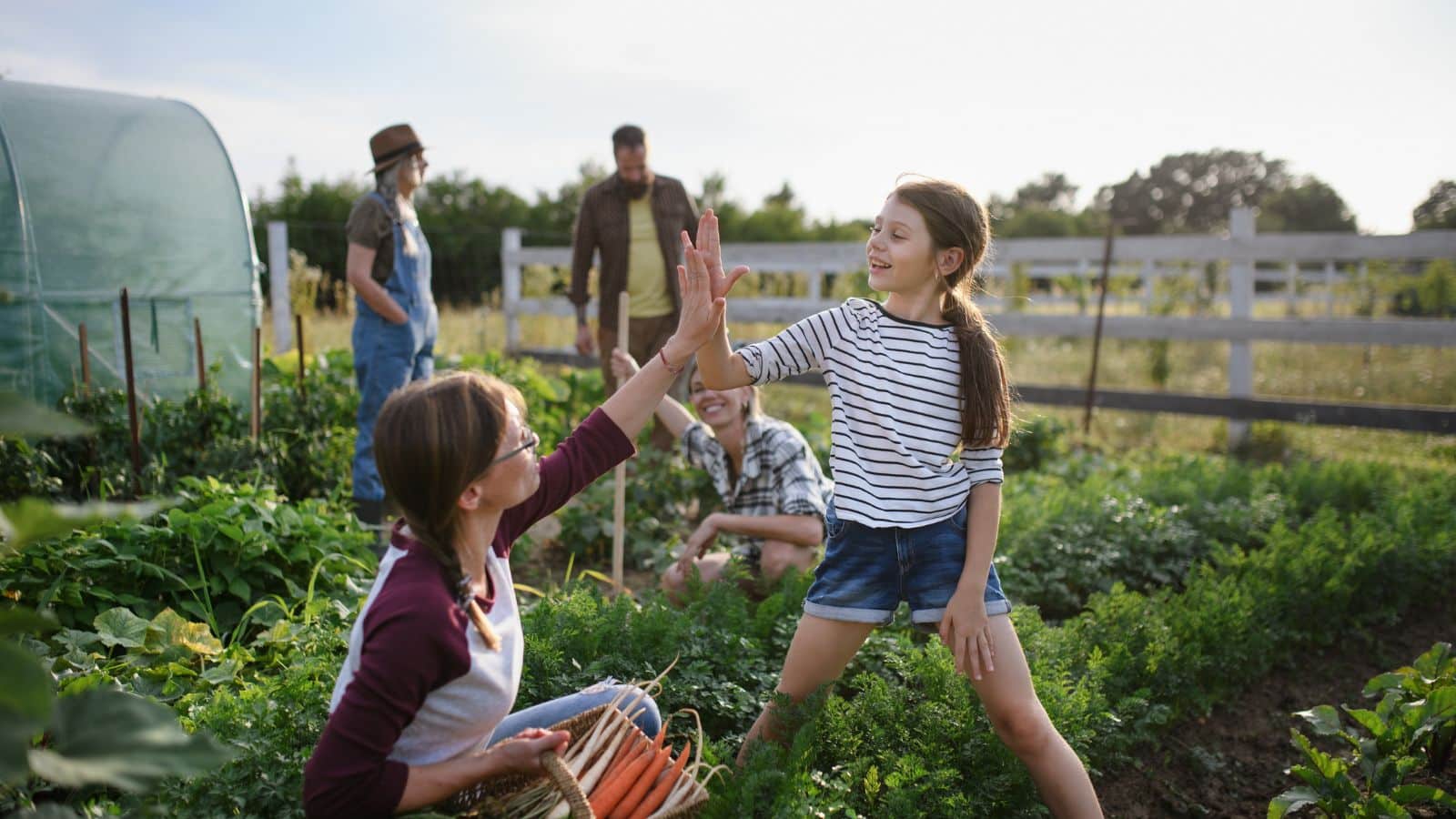While retirement is a time to relax and enjoy the rewards of your labor, it can also be a time to give back to others. For many retirees, being active in their communities and participating in worthy pursuits takes precedence over fancy holidays and playing golf. We explore the mental and physical benefits of volunteerism in retirement and showcase how you can find the best opportunities to lead a fulfilling life once you finish working.
Why Volunteer in Retirement?

Leaving the workforce can create a void in your daily routine. Volunteering fills that gap by providing a sense of purpose and structure. While resting at home is well deserved in your later years, it can often lead to a lack of stimulation. Of course, many retirees like to engage in sports, walking, and crafting, but some people feel they need to engage with people regularly. Having a volunteer role to go to a few times a week adds to your week’s routine and will give you something to get up on when the reality of retirement can feel isolating.
Combating Loneliness

Loneliness is a risk factor during retirement, with conditions such as heart disease, arthritis, and diabetes often developing as a result. Research has shown that over 6.7 million is spent every year on Medicare as a result of loneliness. In addition to volunteering giving you a sense of purpose, it can also allow you to remain active and develop social connections. Volunteering places you in direct contact with like-minded individuals who share your interests and desire to give back. Studies have shown that volunteering in later life can reduce your chance of developing conditions such as dementia and Alzheimer’s disease, something many retirees worry about.
A Chance to Boost Your Confidence

Many people discover hidden talents and learn new skills when volunteering, which are great confidence boosters. Seeing your positive impact on the organization and the individuals you help can significantly boost your confidence and self-esteem. This sense of accomplishment combats loneliness by fostering a positive self-image. Research has shown that volunteering can reduce the rate of depression as time is spent doing something meaningful for others.
Making a Difference in Your Community

Volunteering lets you stay connected to your community, meet new people, and build meaningful relationships. Many volunteer opportunities involve direct interaction with those in need. Whether mentoring a child, providing companionship to an older adult, or assisting at a homeless shelter, your efforts directly improve the lives of individuals facing challenges. Non-profit organizations that rely on volunteers are vital in supporting vulnerable populations. By volunteering, you contribute to the overall well-being of your community by strengthening these essential support systems.
Finding Your Perfect Volunteer Niche

With many worthy organizations seeking volunteers, the biggest challenge might be choosing where to dedicate your time. The key is identifying your passions and interests, such as working with children or caring for the environment. Consider tutoring and mentoring programs or organizing local litter picks.
Utilizing Your Professional Knowledge

Many retirees have a wealth of experience gained over decades in their professional careers. Sharing this expertise with others through volunteering is an excellent way to ensure skills aren’t wasted. Doctors and nurses can volunteer at free clinics, retired engineers can lend their skills to community improvement projects, and former teachers can support adult literacy programs.
Making the Most of Your Volunteer Experience

Once you’ve chosen your volunteer path, take some time to research the organization and understand its specific needs. Be open to different roles and responsibilities. Don’t feel pressured to commit an unrealistic amount of time. Start small and gradually increase your involvement based on your interests and availability. Most importantly, be enthusiastic and show a genuine willingness to learn.
Building Positive Relationships

Building positive relationships with your fellow volunteers is vital to a fulfilling experience. These individuals become your support network, sharing resources, ideas, and some laughs. Many volunteer organizations offer training programs to help new volunteers acclimate to their roles. Be bold, ask questions, and seek guidance from experienced volunteers or staff members.
The Power of Volunteering in Action

Retirement volunteerism has a significant impact on countless individuals and communities across the globe. Speaking to CNN, 67-year-old Celia Barberena told of her concern about what she would do after working in higher education for decades. Celia told readers, “You have to have some place where you go to think and connect and produce.” Barberena became a chair of her local rotary club and an active church member, which she believes helps her memory and verbal reasoning skills in combating loneliness.
Senior Companionship Programs

Retired volunteers can help combat loneliness by visiting isolated seniors and providing companionship, conversation, and a sense of connection. This interaction benefits both parties, with volunteers gaining valuable social interaction and seniors experiencing improved mental and emotional well-being. You can look for local organizations that offer volunteer programs or approach any known care homes of elderly community groups.
Animal Shelters

Many animals rely on shelters for food, care, and a loving home, so local shelters often beg for support. Retired volunteers who love animals can walk dogs, play with cats, and help socialize animals in the hope of helping them fund their forever home. Volunteering at an animal shelter is a great way to get exercise and keep fit if this is also your goal when retiring.
Environmental Conservation Projects

Environmental issues are a global concern. Retired volunteers working with environmental organizations can participate in tree-planting initiatives, beach cleanups, or educational programs to raise awareness about conservation efforts. These individuals contribute to a greener future while enjoying the physical and mental benefits of working outdoors.
Getting Started with Retirement Volunteerism

There are countless resources available to help retirees find the perfect volunteer opportunity. The first thing to consider is how much time you want to spend volunteering. Try to be realistic so that you stay committed and take advantage of other things you would like to do during your retirement, such as spending time with family and traveling. Consider skills you’ve honed throughout your career or hobbies you can pursue while helping others.
VolunteerMatch

This online platform connects volunteers with organizations seeking help. You can search for opportunities based on location, interests, and skills. (https://www.volunteermatch.org/volunteers/)
AARP

The AARP website provides information about volunteer opportunities for retirees, including resources tailored to specific skill sets and interests. (https://www.aarp.org/volunteer/)
Local Senior Centers

Local senior centers offer volunteer programs and can connect you with organizations seeking volunteers. This is a good option if you want to commit only a little time to volunteer but can contribute to particular events or certain days of the week.
Government Agencies

Many government agencies rely on volunteers to support various programs and services. Check your local government website for volunteer opportunities in education, social services, and emergency management.
Setting up Your Volunteering Assignment

While countless volunteer opportunities exist, sometimes the perfect fit only sometimes presents itself. Start by looking within your community. Talk to neighbors, local businesses, or social service organizations to identify unmet needs or areas where your skills and experience could be beneficial. Feel free to get specific. Instead of a broad goal of “helping the environment,” focus on a particular area like community garden maintenance or environmental education programs for children. After researching and choosing an area of need, you can look for partnerships and funding opportunities to support your venture.
Funding for Volunteering

The U.S. government awards grants to non-profit organizations for various purposes, including volunteer program support. Research grant opportunities offered by agencies like the Corporation for National and Community Service (CNCS) or explore specific grants related to your program’s focus area, such as environmental protection, education, and healthcare.
Maintaining Boundaries When Volunteering

Volunteering in retirement offers a wealth of benefits, but it’s essential to establish healthy boundaries to ensure a positive and sustainable experience. These boundaries define acceptable and unacceptable in your volunteer role, protecting your time, energy, and well-being.
Summary of The Benefits of Retirement

Retirement is a time for new beginnings, and volunteering is one of the most productive ways to spend your time. Volunteering allows you to utilize your skills while giving back to others and positively impacting your community. In addition to helping others, volunteering can boost your confidence and improve your physical and mental well-being.




